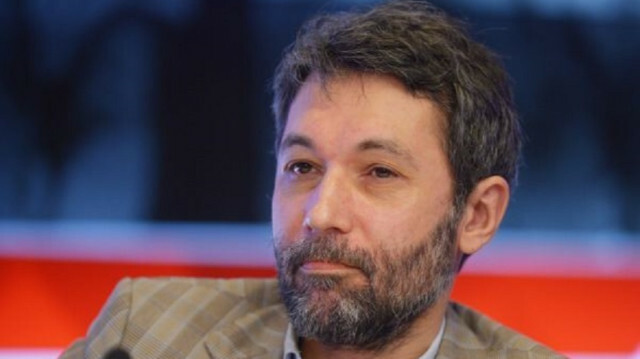
The Armenian government is not working to implement the trilateral agreements signed at the close of the Second Karabakh War, a leading Russian expert told Trend on the sidelines of the Baku Network platform.
Roman Gazenko, a well-known publicist, political strategist, and professor at Maribor University, pointed that, with regards to the process of delimitation and demarcation of borders, everything that Armenia is currently doing in line with the trilateral agreement is aimed at maintaining the internal status of the current government in Armenia.
“The maintenance of revanchist sentiments after the Second Karabakh War, the change of values of the Great Patriotic War, and Russophobia, which is becoming the basis of Armenian domestic policy, are all done solely for the sake of the current prime minister's power,” continued Gazenko.
Gazenko also pointed that it is extremely advantageous for Armenian authorities not to make things better for themselves, while simultaneously making it worse for others.
“Therefore, this position of a latent conflict does not serve the interests of neither Armenia nor its neighbors. “
Gazenko also warned that the current path adopted by the Armenian administration will have dire consequences for Yerevan, its people, and the state as a whole.
“If the government has no idea where it is leading the people and is concerned exclusively with maintaining the so-called static balance... then the government is not fulfilling its duties. The only key task of the state is to ensure the future of its people. When the government thinks only about itself, then all methods are good. Thus, this is a suicidal scenario for Armenia as a state," concluded Gazenko.
Relations between the two former Soviet republics have been tense since 1991 when the Armenian military occupied Nagorno-Karabakh, also known as Upper Karabakh, a territory internationally recognized as part of Azerbaijan, and seven adjacent regions.
New clashes erupted in September last year and ended on Nov. 10 with a Russia-brokered cease-fire.
During the 44-day conflict, Azerbaijan liberated several cities and nearly 300 settlements and villages from Armenia's nearly three-decade occupation.
The cease-fire is seen as a victory for Azerbaijan and a defeat for Armenia, whose armed forces withdrew in line with the agreement.
A joint Turkish-Russian center was established to monitor the truce. Russian peacekeeping troops have also been deployed in the region.













